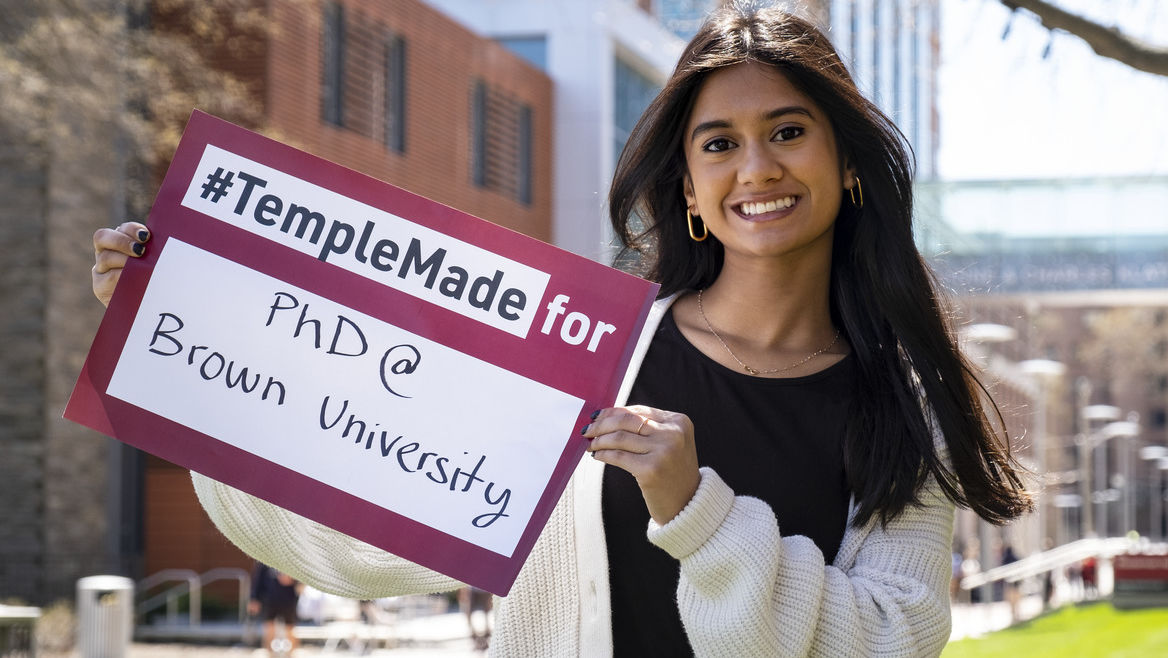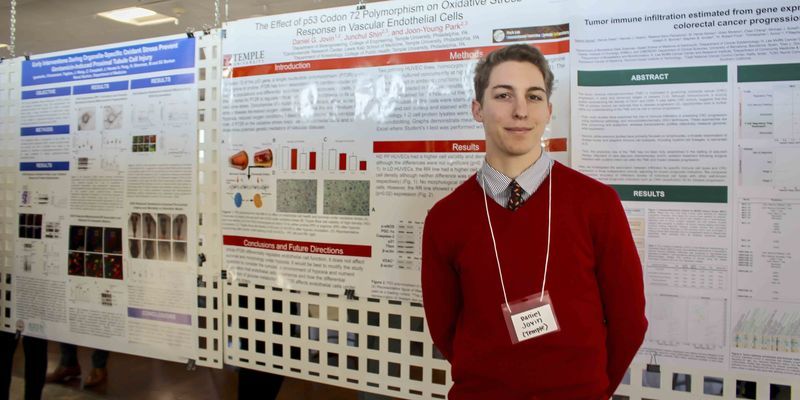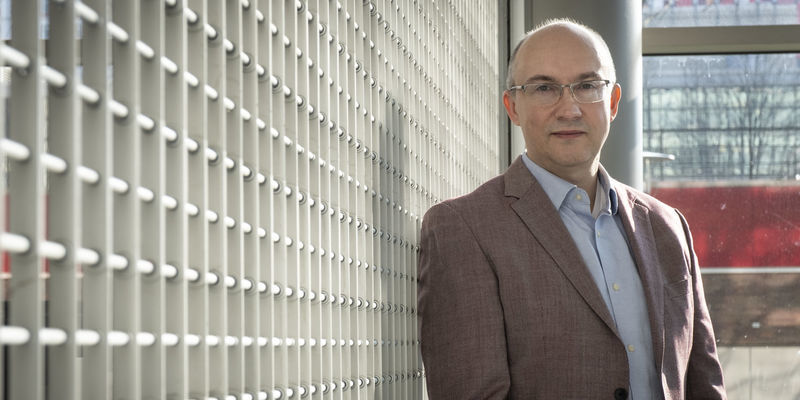Temple Made for … leading her own research lab
As an undergraduate, Areebah Rahman got real-world experience studying traumatic brain injury at the Lewis Katz School of Medicine. Now she’s heading to Brown to pursue further research into neurodegenerative brain diseases.

Name: Areebah Rahman
Major: Neuroscience: Cellular and Molecular
Hometown: Downingtown, Pennsylvania
Temple Made moment: “Getting accepted into the Maximizing Access to Research Careers program. I came to Temple undecided, and the program gave me this great community of support that encouraged me to pursue what I wanted. With grad school applications, my mentors in the program made sure I was on top of everything and showed me that it’s okay to ask for help when you need it!”
After Areebah Rahman, Class of 2022, graduates from Temple this year, she’s heading off to Brown University to enter a PhD program in neuroscience. The five-year program is a collaboration between Brown and the National Institutes of Health (NIH), and during her first year, she’ll split her time taking classes and doing rotations in labs. During her second year, she’ll move to Bethesda, Maryland, to conduct research at the NIH for her thesis. Her academic life will shift into hyperdrive with an intensive focus on brain research, preparing for a career working in a lab.
But back during her first year at Temple, Rahman didn’t even realize that this was an available career path.
“I went to a STEM-focused high school and always loved science, but at the time, I didn’t know research could even be a job!” she remembered.
Rahman began at Temple in 2018 on a pre-pharmacy track, but soon switched to a major in neuroscience in the College of Science and Technology after realizing she didn’t have a particular passion for pharmacy.
During her sophomore year, she got her first up-close look at what a career in research could be like. She was accepted into the Maximizing Access to Research Careers (MARC) program, which is funded by the NIH to provide support for undergraduate students who are historically underrepresented in the biomedical sciences. Rahman was one of six Temple students to become a MARC scholar, and was placed into Diane Langford’s lab within the Department of Neural Science at the Lewis Katz School of Medicine.
“Being mentored by Dr. Langford while working in her lab inspired me to pursue this principal investigator (PI) role,” Rahman said. “She always made the time to meet with me, and let me take on independent roles in the lab, even though I was an undergrad. Sometimes being a PI can be cutthroat, but she is successful at her job and a kind person. Seeing her, I realized that you don’t have to sacrifice who you are as a person [for your career].”
While working in Langford’s lab, Rahman explored research around traumatic brain injuries, as well as brain cancer. She was in a unique position as an undergraduate to help create and run experiments, which allowed her to develop her scientific abilities. In her future rotations at Brown, Rahman hopes to spend time in a lab that focuses on neurodegenerative diseases, like Parkinson’s and Alzheimer’s.
“I want to develop and nurture my interests and to become a well-rounded scientist,” she noted.
While Rahman’s future aspirations include running her own lab, she doesn’t know exactly right now what part of neuroscience it might be focused on. Her top priority, however, will be to pay forward the mentorship she received at Temple.
“My main focus will be to encourage people to pursue their scientific interests,” she said. “The MARC program helped me find great female mentors, and I would like to be a mentor like that for others some day.”
—Emily Kovach


